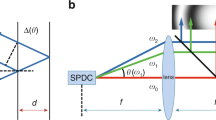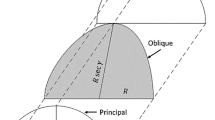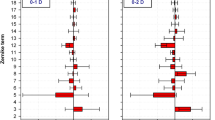Abstract
THE image-forming properties of many types of lens have been measured in this laboratory, with particular reference to their suitability for use in television equipment such as cameras, film scanners, telerecorders, etc. The spatial frequency response of a lens is one of the most important characteristics to be determined; and the basic photoelectric methods of measuring this response function have been largely developed in Britain by Sproson1.
This is a preview of subscription content, access via your institution
Access options
Subscribe to this journal
Receive 51 print issues and online access
$199.00 per year
only $3.90 per issue
Buy this article
- Purchase on Springer Link
- Instant access to full article PDF
Prices may be subject to local taxes which are calculated during checkout
Similar content being viewed by others
References
Sproson, W. N., B.B.C. Quarterly, 8, No. 1 (1953); B.B.C. Engineering Monograph No. 15 (Dec. 1957).
Lindberg, P., Optica Acta, 1, 80 (1954). Birch, K. G., Acta Electronica, 2 (1957/58). Hopkins, H. H., Optica Acta, 2, 23 (1955). Kelsall, D., Acta Electronica, 2 (1957/58).
Born, M., et al., Nature, 156, 756 (1945).
Author information
Authors and Affiliations
Rights and permissions
About this article
Cite this article
HACKING, K. An Optical Method of obtaining the Frequency Response of a Lens. Nature 181, 1158–1159 (1958). https://doi.org/10.1038/1811158b0
Issue Date:
DOI: https://doi.org/10.1038/1811158b0
Comments
By submitting a comment you agree to abide by our Terms and Community Guidelines. If you find something abusive or that does not comply with our terms or guidelines please flag it as inappropriate.



